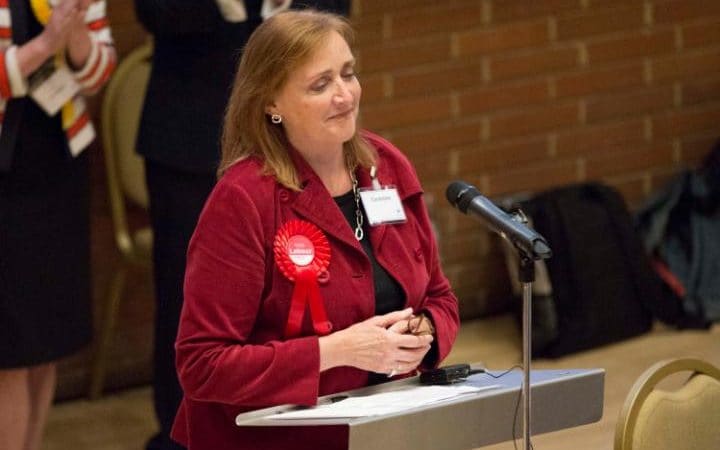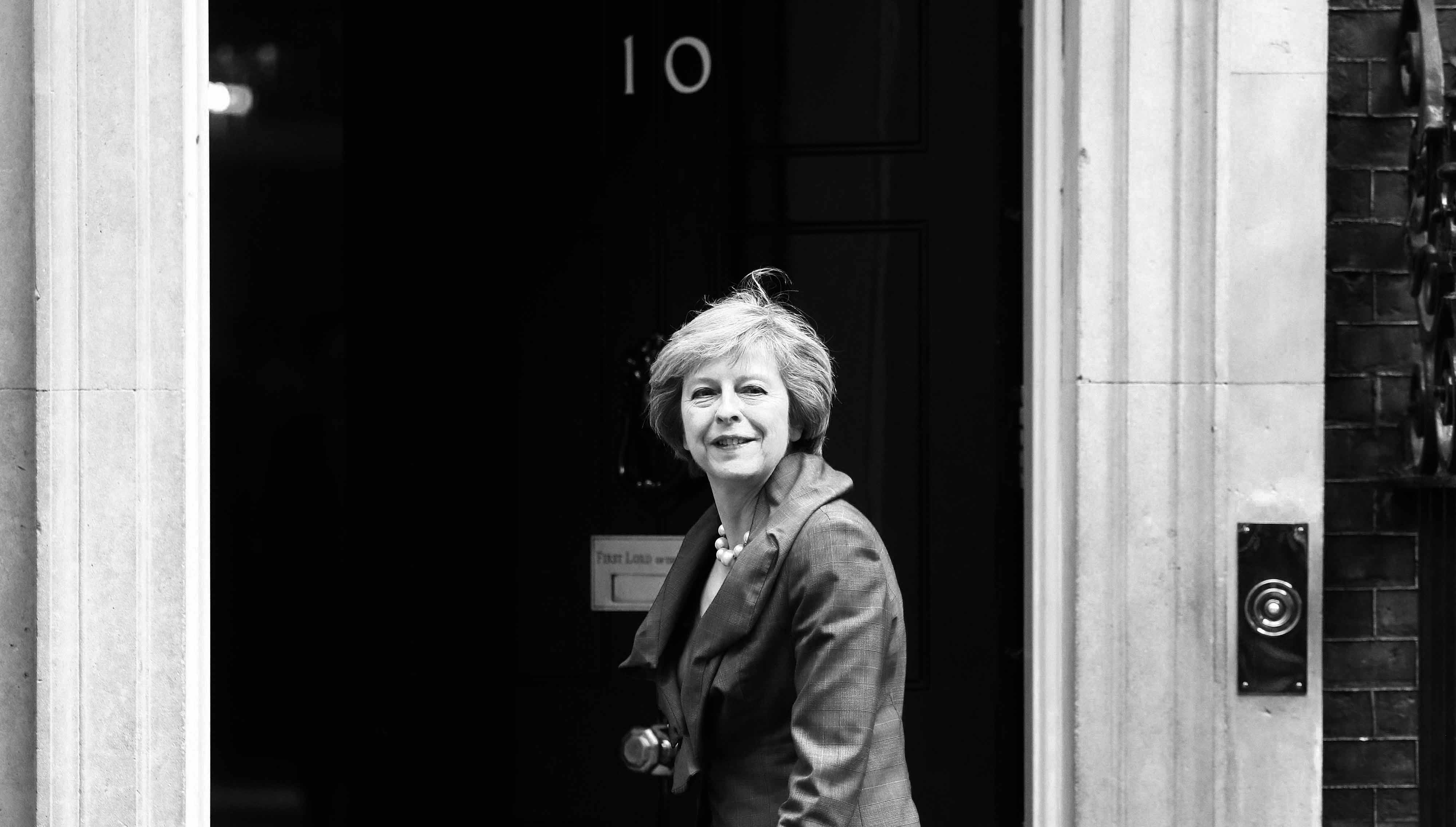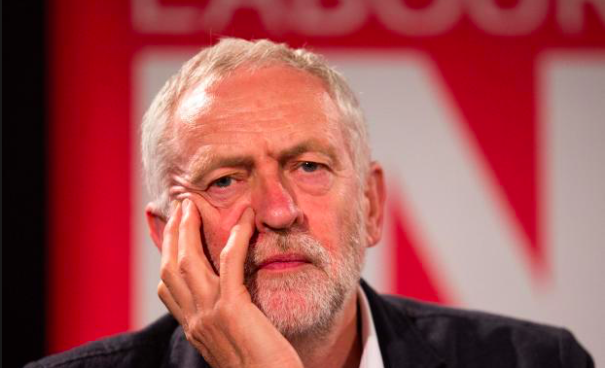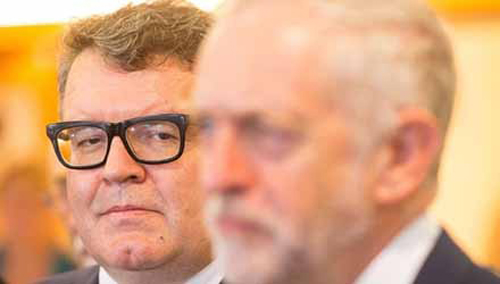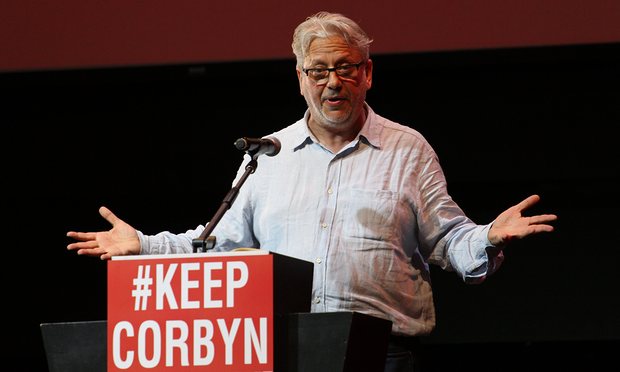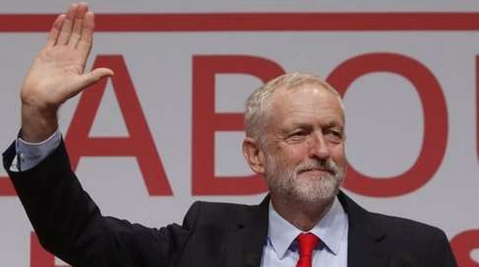There is a real danger that after triggering article 50 Theresa May will follow through with a snap general election, writes Eddie Ford (this article first appeared in the Weekly Worker)
Looking to the future, Tom Watson has shifted the right’s focus from a direct attack on Jeremy Corbyn and his leadership to Momentum and Unite’s general secretary election. Obviously the right wants to see the back of Len McCluskey and a victory for his challenger, Gerald Coyne. Jon Lansman, the chair and effective owner of Momentum, was, of course, taped in Richmond on March 1, and the transcript was carefully released, to full media publicity, just as polling papers were being sent out to Unite members. How convenient.
Jeremy Corbyn and Tom Watson have issued a joint statement agreeing that groups have a right to influence the Labour Party so long as they “operate within the rules.” But what Watson was trying to do was to influence the Unite election, not expose any wrong doing by Momentum.
So it is worth asking whether or not Watson and Coyne are involved in a Machiavellian plot to shift opinion in Unite and maintain the right’s grip over the structures of the Labour Party, up to and including the Parliamentary Labour Party, in perpetuity. Did brothers Watson and Coyne know about the “secret” Richmond tape before the “shocking revelation” was made public? Were they involved in any way in the taping, in transcribing it or in timing its release to The Observer?
Jon Lansman says he hopes that both Unite and the Communication Workers Union will soon affiliate to Momentum. Nothing sinister in that. They would merely be following in the footsteps of the TSSA and FBU. Doubtless that would mean more money in Momentum’s coffers and more full-timers for Jon Lansman to appoint. A leftwing bureaucracy to rival the rightwing bureaucracy of the hugely well financed – not least thanks to Lord David Sainsbury – Progress faction.
Watson claims Momentum will “destroy Labour as an election force”. Certainly the intervention in Unite’s election and the civil war unleashed against Corbyn – by Iain McNicol, Tony Blair, Peter Mandelson, Watson himself and the vast majority of the PLP – has severely damaged Labour’s chances in a general election.
The by-election results in Stoke and Copeland surely prove it. Yes, Labour won in Stoke Central. But unfortunately this did not represent an endorsement of the Labour Party, nor was Ukip “well and truly stuffed” – a rather silly statement made by the ex-Trotskyist, Paul Mason, who went on to claim that Stoke “shows how to destroy” Ukip (actually it is Theresa May and her pursuit of a hard Brexit that is doing that).
Back in the real world though, Labour’s candidate, Gareth Snell, did well to get 7,853 votes (37.1%), as opposed to ‘Dr’ Paul Nuttall’s 5,233 (24.7%) on a very diminished turnout of 38.2% (down 11.7% from 2015). But Labour’s vote declined both in absolute and relative terms. In percentage terms we lost 2.2%, while Ukip gained 2.0%. Moreover, both the Tories and Liberal Democrats increased their share of the vote: 1.8% and 5.67% respectively. And, of course, if Ukip were “well and truly stuffed”, it would have seen them come not second, but at the bottom of the list, along with the Monster Raving Loony Party, the British National Party and the Christian People’s Alliance.
True, there had been intense media speculation, ever since Tristram Hunt resigned the seat for his “dream job” of director of the Victoria and Albert Museum, that Stoke Central could fall into the hands of Ukip – for fairly good reasons, it does have to be said. Stoke council, though not the same as the constituency, has been under ‘no overall control’ since 2015, with Ukip at its core. Stoke, of course, notched up the highest Brexit vote of any UK city with 69.7% – hence the exaggerated talk about the “Brexit capital of Britain”, and so on. Generally, Labour’s base in the area has undergone a considerable erosion in recent years, enabling Ukip to make relatively impressive gains in all three of the city’s constituencies at the last general election – for example, closing the gap with Labour to just 2.7% in neighbouring Stoke-on-Trent North.
Overall, you can say that Stoke was not a disaster for either Labour or Ukip – depending on what their expectations were. At Ukip’s recent spring conference, Nigel Farage set the bar very high, describing Stoke as “fundamental” for “the futures of both the Labour Party and indeed of Ukip too” – it “matters and it matters hugely”. By that criterion, Stoke was a failure – but, regardless, for the time being Farage is publicly standing by Nuttall. Only time will tell. Anyway, Stoke was only a “decisive rejection” of Ukip if you were genuinely convinced that it should have been a shoe-in for Nuttall – which was always a dubious proposition.
Copeland, however, is a different matter. Yes, you can talk about special circumstances – such as the importance of the nuclear industry as a major local employer, Storm Doris, and the fairly small size of the Labour majority (2,147). Nevertheless, in terms of the core constituency, Labour has held Copeland since 1935, when it was recovering from the debacle of the 1931 national government. In the end, the Tory candidate, Trudi Harrison, won with 13,748 votes (44.2%) on a much higher turnout than Stoke of 51.33% – amounting to a 6.7% swing to the Tories. Labour slumped to 11,601 (37.3%), down 4.9% – whilst the Lib Dems and Ukip trailed well behind, getting 7.2% and 6.5% respectively (meaning that Ukip’s vote fell sharply by 9%). This represented the first gain for a governing party at a UK by-election since 1982. Copeland also saw the largest increase in a governing party’s share of the vote in a by-election since 1966.
Hence, Labour’s situation is even worse than it first seems, when you remember that by-elections tend to underestimate support for the governing party and reward oppositional parties – an opportunity to give the government a mid-term kicking. This makes it all the more telling, and ominous, that it was May who had the most to celebrate afterwards. If we are to be brutally honest, Labour is in danger of decimation at the next general election.
Revival?
These by-elections raise a number of questions. Firstly, does Ukip have a long-term future? You do not have to be a genius to think it is pure nonsense to believe that Ukip is on the road to replacing Labour as the official opposition or natural voice of the working class. The Labour Party is a historically constituted party based on the trade union movement. True, that movement may have considerably declined over the decades, yet we are still dealing with a membership of six million – not something that will go away easily.
Ukip, on the other hand, is an ephemeral organisation based fundamentally on opposition to the European Union. In that sense, Ukip can only be defined negatively – by what it is against, not what it is for. Now, after June 23 – with Theresa May skilfully appropriating the ‘hard Brexit’ agenda – what actually is the point of Ukip? Maybe to stumble on as a pressure group, making sure the prime minster keeps to her pledge – which is not much of a reason to exist. No wonder Ukip tops are falling out with each other. Arron Banks with Douglas Carswell, Nigel Farage with Douglas Carswell, Neil Hammond with Nigel Farage, etc.
Essentially, in Copeland a big slice of the Ukip vote simply marched into the Tory camp. There is every reason to think that that this pattern will be replicated, to one degree or another, in the general election, as May ploughs ahead with her Brexit plans – EU deal or not, World Trade Organisation rules or not. If Brexit actually happens, which is a real possibility in the new world of Trump, that would further place a question mark over Ukip’s future – with job done, surely time to close shop. Then again, if Marine Le Pen does defy the polls and becomes president of France – not something you can completely dismiss – then the EU will be finished anyway, almost making Brexit redundant. There would be nothing to exit.
What about the Lib Dems? Historically speaking, these should be ideal conditions for a revival after they were punished by voters for getting into bed with the Conservative Party in the coalition government. We have had the unedifying spectacle of Jeremy Corbyn getting out his three-line whip and urging Labour MPs to vote with the Tories to trigger article 50 and proceed with what Labour was telling us would be a catastrophe for the British economy – in which case, surely we should be duty-bound to oppose it? Step forward the Lib Dems, saviours of the country from Brexit darkness. After all, almost half of the electorate voted ‘remain’ and even in Stoke just over 30% came out for continued EU membership. And here is the party that is making opposition to Brexit its core issue. Yet what did they get in the by-elections? In Stoke, their vote only went up 5.7% (to 9.8% – at least they saved their deposit this time) and it was pretty much the same in Copeland – only increasing by 3.8%, putting them on 7.3% of the total vote.
You could argue that we could be seeing another attempt to create a centrist third party – in that the cross-party Open Britain has been backed by Tony Blair, Peter Mandelson, John Major and others. Thus John Prescott in the Sunday Mirror says that OB “looks like an SDP mark two”, with Mandelson and Blair “whipping up dissent to split Labour”, just like Roy Jenkins and David Owen did before they launched the Social Democratic Party in 1981. This is very unconvincing, to say the least. In the 1980s you saw an upsurge of the centre ground – just as importantly, if not more so, for a while it looked as if joining the SDP could possibly be a good career move: it seemed to be going places.
But the situation today is totally different. British politics is increasingly polarised, albeit in contradictory ways, between left and right – and now is being repolarised along Brexit lines, with even more contradictory outcomes. The centre ground is not undergoing a significant revival. In Stoke and Copeland the Lib Dems merely showed that they still exist. Nor does anyone in the Labour Party seriously think that there is going to be another SDP that is going to provide them with an alternative career plan – or dislodge Jeremy Corbyn.
This explains Tom Watson’s reaction to the by-election results at the Scottish Labour Party conference in Perth – he argued strongly that there should be no more challenges to Corbyn’s leadership. Further attacks on Corbyn from the PLP could result in Labour MPs losing their seats (and lucrative careers) – and for what? Corbyn cannot be removed under current circumstances, as the mass membership retains faith in him – that was recently tested with the second leadership contest. Owen Smith, the right’s candidate, for all the backing from MPs and the media, lost badly – therefore to keep openly attacking Corbyn would be self-defeating. That is the calculation of most of the PLP: stick with JC as leader for now and muddle through to the next election, hoping that events might come to your rescue.
Flawed
When you look at opinion polls, what is immediately noticeable is not the growth of the centre – forget it – but the strength of the Tory Party, increasing its standing over this period to almost 1950s levels of support. Recent polls have put the Conservatives on over 40% and Labour as low as 24%. Theresa May continues to be the favoured choice for prime minister, with one poll showing 49% of people preferring her to Corbyn. The Labour leader is backed by only 15% of voters, whilst 36% don’t know.
The last time the monthly Guardian series, for instance, produced a larger Conservative lead was back in 1983, just before the June general election trouncing of Michael Foot. In other words, in terms of popular support, it is the Labour Party that is losing out – in Scotland to the Scottish National Party, and in England and Wales to the Conservatives. Stoke and Copeland just underline the growing ascendancy of the Tory Party.
Needless to say, this poses acute problems for the Corbyn-McDonnell-Milne strategy – which appears fundamentally flawed, as argued by professor John Curtice in The Guardian. Curtice notes that Labour seems to have “misguidedly” decided that its “first priority” is to “stave off the threat from Ukip to its traditional working class vote – much of which supposedly voted ‘leave’ in the EU referendum”. But in so doing, he writes, Labour “seems to have forgotten (or not realised) that most of those who voted Labour in 2015 – including those living in Labour seats in the north and the Midlands – backed ‘remain’”. Therefore the party, he concludes, is “at greater risk of losing votes to the pro-‘remain’ Liberal Democrats than to pro-Brexit Ukip” – with Stoke and Copeland seeming to prove that ‘remain’ voters “must now be Labour’s top priority”.
Instead of ‘respecting’ the verdict of the British people in David Cameron’s botched referendum, Labour needs a clear perspective when it come to Europe. Labour Party Marxists opposes all Brexit calls – even at this stage. However, that implies no illusions in the EU as presently constituted. Yet for socialism to be a viable project Europe must be our decisive point of departure. So we should commit ourselves not to making Brexit a success, but developing links and coordination with working class and leftwing forces in Europe.
Far-reaching
Our main goal should certainly not be the attempt to win the next general election by rebranding Jeremy Corbyn as a populist, courting the capitalist media or striking the latest compromise deal with Tom Watson, let alone going for a “a broad political alliance” with the Liberal Democrats, Greens, Scottish and Welsh nationalists. A well-trodden road to disaster. No, our main goal should be transforming the Labour Party, so that, in the words of Keir Hardie, it can “organise the working class into a great, independent political power to fight for the coming of socialism”.
Towards that end we need rule changes to permit left, communist and revolutionary parties to affiliate once again. As long as they do not stand against us in elections, this can only but strengthen us as a federal party. Today affiliate organisations include the Fabians, Christians on the Left, the Cooperative Party, the Jewish Labour Movement and Labour Business. Allow the SWP, SPEW, CPGB, the Morning Star’s CPB, etc, to join our ranks.
Moreover, programmatically, we should consider a new clause four. Not a return to the old, 1918, version, but a commitment to working class rule and a society which aims for a stateless, classless, moneyless society, embodying the principle, “From each according to their abilities, to each according to their needs”. Towards that end the Labour Party should commit itself to achieving a democratic republic. The standing army, the monarchy, the House of Lords and the state sponsorship of the Church of England must go. We should support a single-chamber parliament, proportional representation and annual elections. All of that ought to be included in our new clause four (see box).
The PLP’s perpetual rebels are out-and-out opportunists. Once and for all, we must put an end to such types exploiting our party. Being an MP ought to be an honour, not a career ladder, not a way for university graduates to secure a lucrative living.
A particularly potent weapon here is the demand that all our elected representatives should take only the average wage of a skilled worker. A principle upheld by the Paris Commune and the Bolshevik revolution. Even the Italian Communist Party under Enrico Berlinguer applied the ‘partymax’ in the 1970s. With the PCI’s huge parliamentary fraction this proved to be a vital source of funds.
Our MPs are on a basic £67,060 annual salary. On top of that they get around £12,000 in expenses and allowance, putting them on £79,060 (yet at present Labour MPs are only obliged to pay the £82 parliamentarian’s subscription rate). Moreover, as leader of the official opposition, Jeremy Corbyn not only gets his MPs salary. He is entitled to an additional £73,617.
Let them keep the average skilled workers’ wage – say £40,000 (plus legitimate expenses). Then, however, they should hand the balance over to the party. Jeremy Corbyn, John McDonnell, Dianne Abbott ought to take the lead in this.
Imposing a partymax would give a considerable boost to our finances. Even if we leave out our 20 MEPs from the calculation, it would amount to a £900,000 addition. Anyway, whatever our finances, there is the basic principle. Our representatives ought to live like ordinary workers, not pampered members of the middle class. So, yes, let us agree the partymax as a basic principle.
Given the huge challenges before us, we urgently need to reach out to all those who are disgusted by corrupt career politicians, all those who aspire for a better world, all those who have an objective interest in ending capitalism. Towards that end we must establish our own press, radio and TV. To state the obvious, tweeting and texting have severe limits. They are brilliant media for transmitting simple, short and sharp messages. But, when it comes to complex ideas, debating history and charting political strategies, they are worse than useless.
Relying on the favours of the capitalist press, radio and TV is a game for fools. True, it worked splendidly for Tony Blair and Alistair Campbell. But as Neil Kinnock, Gordon Brown and Ed Miliband found to their cost, to live by the mainstream media is to die by the mainstream media.
No, to set the agenda we need our own full-spectrum alternative.
The established media can be used, of course. But, as shown with the last anti-Corbyn coup, Tom Watson’s latest stunt and the Unite elections, when things really matter, we hardly get a look in. Indeed the capitalist press, radio and TV are an integral part of the ruling class establishment. There are, of course, siren voices to the contrary. Those who think we can win over The Guardian, the Mirror, etc. But, frankly, only the determinedly naive could not have anticipated the poisonous bias, the mockery, the hatchet-jobs, the implacable opposition.
Once we had the Daily Herald. Now we have nothing. Well, apart from the deadly dull trade union house journals, the advertising sheets of the confessional sects and the Morning Star (which is still in the grip of unreconstructed Stalinites).
We should aim for an opinion-forming daily paper of the labour movement and seek out trade union, cooperative, crowd and other such sources of funding. And, to succeed, we have to be brave – iconoclastic viewpoints, difficult issues, two-way arguments, must be included as a matter of course. The possibility of distributing it free of charge should be considered and, naturally, everything should be put up on the web without paywalls. We should also launch a range of internet-based TV and radio stations. With the abundant riches of dedication, passion and ideas that exist on the left here in Britain and far beyond, we can surely better the BBC, Al Jazeera, Russia Today and Sky.
Of course, the Jeremy Corbyn-John McDonnell leadership faces both an enemy without, in the PLP, and an enemy within, in their own reformist ideology. They seriously seem to believe that socialism can be brought about piecemeal, through a series of left and ever lefter Labour governments. In reality, though, a Labour government committed to the existing state and the existing constitutional order would produce not decisive steps in the direction of socialism, but attacks on the working class … and then, as we have repeatedly seen, beginning with the January-November 1924 Ramsay MacDonald government, the re-election of the Tories.

